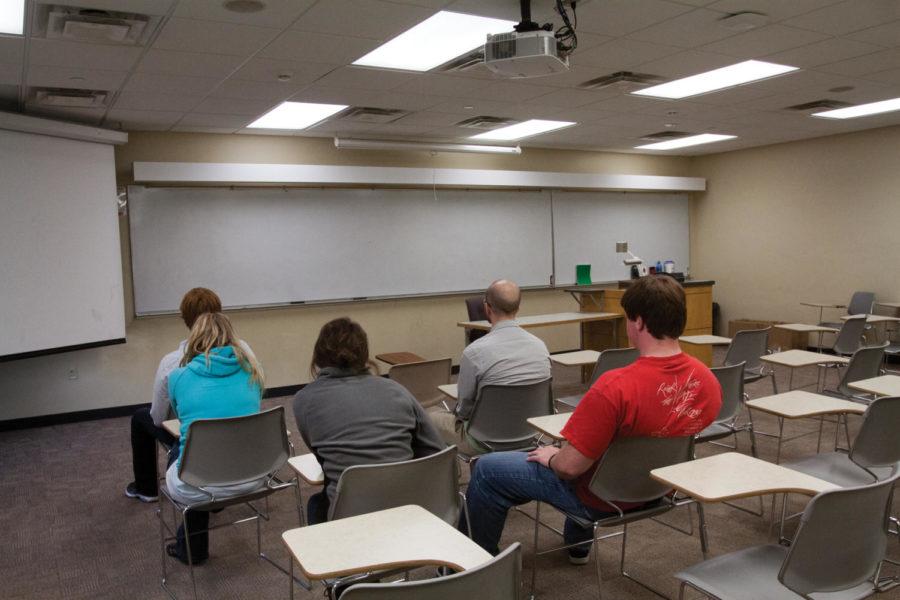Lesser-known majors can offer big benefits
Photo Illustration: Megan Wolff/Iowa State Daily
Small Majors
November 2, 2012
As the end of the semester approaches, some students, especially freshman and sophomores, are wondering if their major is right for them. It is important to pick not only a major you like, but also one that will be able to land a job after college.
A lot of students don’t know about all of the majors available at Iowa State, especially the smaller ones. According to the Registrar’s office, there are some so small that they hover in the single digits for enrollment.
These are biophysics, women’s studies, and bioinformatics and computational biology.
Mark Hargrove, professor in biochemistry and biophysics and molecular biology, was asked why he thinks his field is the smallest major on campus.
“[Biophysics] is very similar to biochemistry but with more physics and math classes. … Most people go with biochemistry instead because it’s more for medicine,” Hargrove said.
“People who are good at math should do biophysics,” Hargrove said. “It’s about 80 percent the same as biochemistry, but you do more computer research in your occupation than actual lab research.”
Gloria Jones-Johnson, professor of sociology and program director for women’s studies, was asked about women’s studies being the second smallest major on campus. “Women’s studies is more untraditional; it’s not like history or sociology. It doesn’t get as much exposure as other majors,” Jones-Johnson said.
Although it is an untraditional major, there are many job opportunities once students graduate, Jones-Johnson said.
“Marketing, advertising, business, and governmental and non-governmental organizations… [Students shouldn’t] be afraid to apply to many jobs; look at the skills it requires instead of the major they ask for. … You will have to know how to sell yourself, but after that, most people will get the job.”
She says some perks of majoring in women’s studies are “good teaching and communication skills, many study abroad opportunities, and learning the ability to see with many different perspectives.”
Stephen Willson, university professor of mathematics, has a similar opinion about bioinformatics and computational biology. “It isn’t as popular because students aren’t familiar with it, like math, English, or history. Not many schools offer this major, and not many students know what it’s for,” said Willson.
He explains that the major is for “sensory math being more applied with biology, DNA and diseases. It uses high-tech biology to evaluate all this info.”
For students that are good at “math, statistics, computer and biology skills, they would like this major,” Willson said.
He added, “It is a hard major, and the classes are difficult… [But] in this economy, there is a high demand in the field of technology.”

















